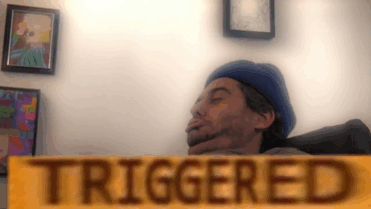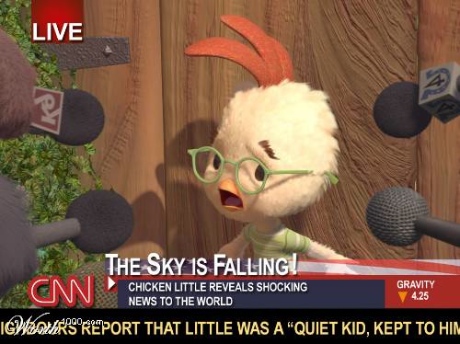Not unlike child transmissions. There are plenty of articles that say they should be able to transmit, but no studies to date that include much data that proves they effective at transmitting, if they transmit at all. Child to adult transmission is near impossible to find in the real world.
There is a huge difference between the amount of evidence available on asymptomatic spread and the role of children in transmission. There are lots of peer reviewed articles which show asymptomatic spread is not only possible, it's been confirmed as one of the key factors that allowed the virus to spread so quickly to millions of people around the world.
The issue of children spreading the virus is less clear. It's not safe to assume children can't spread the virus. Hopefully more studies will be able to shed light on the extent to which it's a major issue.
New Studies Add to Evidence that Children May Transmit the Coronavirus
Experts said the new data suggest that cases could soar in many U.S. communities if schools reopen soon.
Published May 5, 2020Updated May 8, 2020
Among the most important unanswered questions about
Covid-19 is this: What role do children play in keeping the pandemic going?
Fewer children seem to get infected by the
coronavirus than adults, and most of those who do have mild symptoms, if any. But do they pass the virus on to adults and continue the chain of transmission?
In one study,
published last week in the journal Science, a team analyzed data from two cities in China — Wuhan, where the virus first emerged, and Shanghai — and found that children were about a third as susceptible to
coronavirus infection as adults were. But when schools were open, they found, children had about three times as many contacts as adults, and three times as many opportunities to become infected, essentially evening out their risk.
The second study, by a group of German researchers, was more straightforward.
The team tested children and adults and found that children who test positive harbor just as much virus as adults do — sometimes more — and so, presumably, are just as infectious.
The German study was led by Christian Drosten, a virologist who has
ascended to something like celebrity status in recent months for his candid and clear commentary on the pandemic. Dr. Drosten leads a large virology lab in Berlin that has tested about 60,000 people for the coronavirus. Consistent with other studies, he and his colleagues found many more infected adults than children.
Dr. Drosten said he
posted his study on his lab’s website ahead of its peer review because of the ongoing discussion about schools in Germany.
“But the message of the paper is really unchanged by any type of more sophisticated statistical analysis,” he said. For the United States to even consider reopening schools, he said, “I think it’s way too early.”
Dr. Nuzzo also pointed to a
study in the Netherlands, conducted by the Dutch government, which concluded that “patients under 20 years play a much smaller role in the spread than adults and the elderly.”
“Assumptions that children are not involved in the epidemiology, because they do not have severe illness, are exactly the kind of assumption that you really, really need to question in the face of a pandemic,” Dr. Hanage said. “Because if it’s wrong, it has really pretty disastrous consequences.”
The experts all agreed on one thing: that governments should hold active discussions on what reopening schools looks like. Students could be scheduled to come to school on different days to reduce the number of people in the building at one time, for example; desks could be placed six feet apart; and schools could avoid having students gather in large groups
The leaders of the two new studies, Dr. Drosten and Dr. Ajelli, were both more circumspect, saying their role is merely to provide the data that governments can use to make policies.
“I’m somehow the bringer of the bad news but I can’t change the news,” Dr. Drosten said. “It’s in the data.”
https://www.nytimes.com/2020/05/05/health/coronavirus-children-transmission-school.html
Children 'do transmit COVID-19' to adults, says researcher whose report was 'misunderstood' as evidence that kids cannot spread coronavirus
Apr 30, 2020, 2:47 PM
"Children almost certainly DO transmit COVID-19," Munro, a clinical research fellow in pediatric infectious diseases at University Hospital Southampton, said on
Twitter on Thursday, adding: "Growing evidence suggests children are less susceptible to infection, have milder infection, and are infrequently responsible for household transmission."
The Royal College of Pediatrics also corrected the record,
tweeting that "a number of media reports, citing RCPCH, have incorrectly suggested that children cannot transmit COVID-19. This is not the the RCPCH position, nor is it based on evidence."
Experts warn there is nowhere near enough evidence to feel confident that children don't spread the virus
SARS was another respiratory disease that also affected adults more than children. "Transmission of SARS from pediatric patients appears to be uncommon but is possible," wrote the authors of a
2006 study.
However, German virologist Christian Drosten, director of the Institute of Virology at Berlin's Charite hospital, urged policymakers to exercise caution when looking at studies examining the effects of COVID-19 on children. He
pointed out that the findings of a
Dutch study, which was used as evidence that children do not play a big role in spreading COVID-19, were not statistically significant.
According to his own research, Drosten said, children can carry as high levels of the coronavirus as adults. He and his colleagues
warned "against an unlimited reopening of schools and kindergartens in the present situation."
In an
April 29 press conference, World Health Organization technical lead Maria van Kerkhove doubled down on warnings against seeing children as immune, or unable to pass on the virus.
"There's no reason to think that children are less susceptible to infection if they're exposed, and that they can't transmit," she said. "We're really not seeing this in the epidemiology."
https://www.businessinsider.com/children-do-transmit-covid-19-says-researcher-amid-confusion-2020-4

